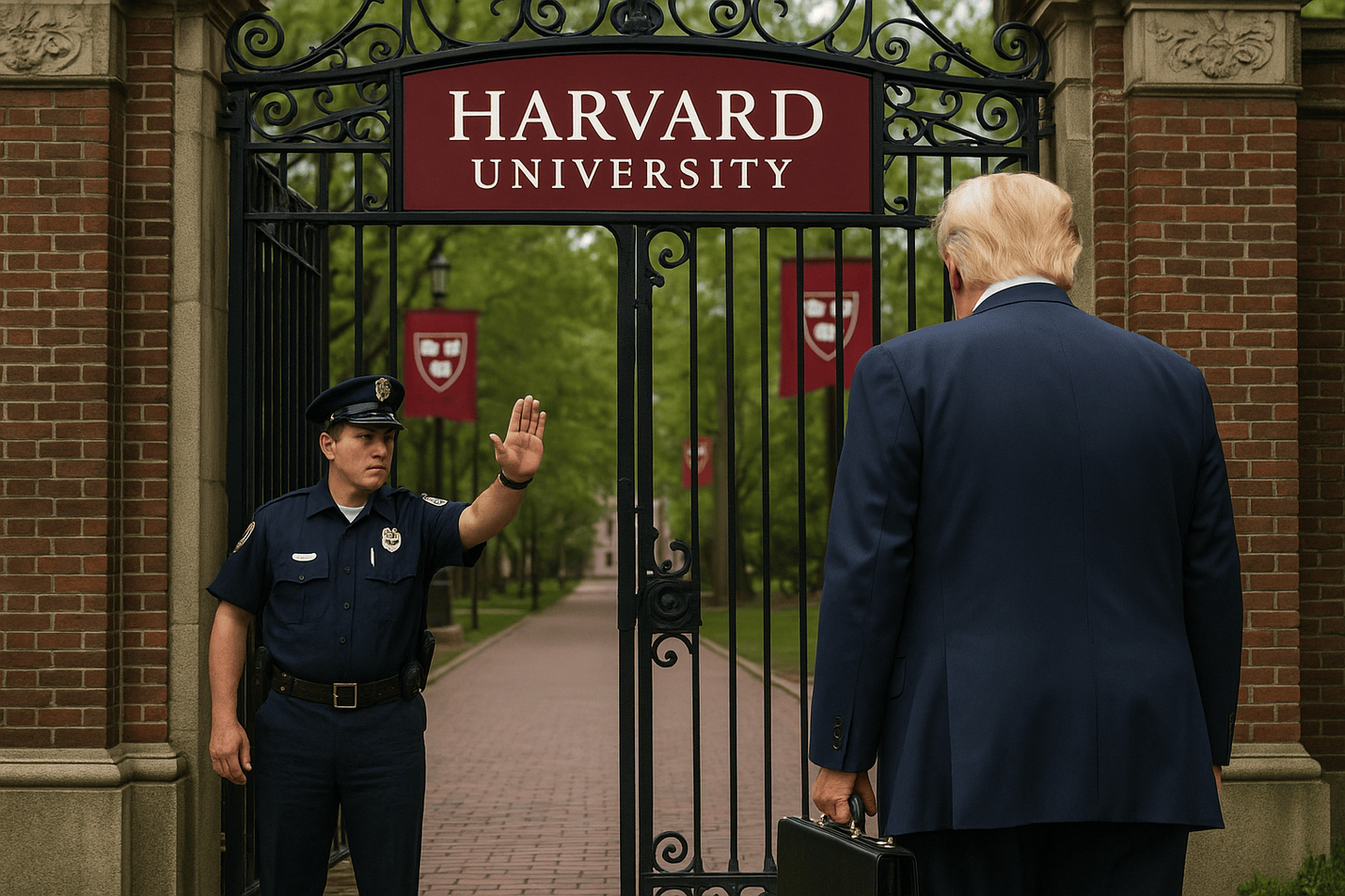Harvard University Rejects Trump Administration’s Push for Reforms: Upholds Academic Autonomy
In a firm response, Harvard University has dismissed the Trump administration’s reform demands, citing the importance of academic freedom, institutional integrity, and its commitment to diversity and global excellence.
Harvard Draws the Line on Federal Overreach
In a bold and decisive stance, Harvard University has officially rejected reform proposals urged by the Trump administration, igniting fresh debate over academic freedom, federal authority, and the future of higher education in America. The elite institution clarified that the proposed changes undermined core principles of independence, academic integrity, and intellectual diversity — values it considers foundational to its identity.
Although not all details of the proposed reforms have been disclosed, sources familiar with the issue indicate that the Trump administration sought to implement stricter oversight of university curricula, enhance transparency in foreign partnerships, particularly with China, and modify affirmative action policies to focus on what it called “merit-based” admissions.
Background: Long-Standing Friction Between Ivy Leagues and the Trump Era
Harvard has long been a symbolic target for Republican administrations, especially under former President Donald Trump. During his tenure, the Trump administration frequently criticised elite institutions like Harvard and Yale for promoting what it perceived as “left-wing indoctrination,” racial quotas under affirmative action, and for receiving disproportionate endowments while allegedly neglecting middle-class American values.
In 2020, the administration attempted to strip international students of their visas if they attended only online classes — a move that Harvard and MIT successfully challenged in court. That incident marked a key flashpoint in the deteriorating relationship between academia and federal politics.
University’s Response: An Emphasis on Autonomy and Excellence
In an official statement, Harvard’s President (acting) affirmed the university’s position:
“Harvard has always stood for the free pursuit of truth, the protection of academic integrity, and the value of inclusive excellence. These principles are not up for negotiation.”
The university also emphasised that decisions regarding curriculum design, international partnerships, and student admissions must remain within the academic domain and free from political manipulation.
Harvard further noted that reforms dictated by political ideologies risk diluting academic quality and suppressing critical thinking, two pillars essential to the university’s global leadership in education and research.
Concerns Over Foreign Collaborations: The China Question
A significant point of contention stems from Harvard’s partnerships and joint programs with Chinese institutions. The Trump administration had consistently warned about China’s “strategic threat” in academic and technological collaborations, urging U.S. universities to sever ties with Confucius Institutes and scrutinise funding sources.
Harvard justified its international academic initiatives to encourage intellectual diplomacy and stimulate innovation. “Engagement does not imply endorsement,” the university maintained, asserting that research collaboration must be based on mutual benefit and rigorous standards, regardless of geography.
Affirmative Action Under Scrutiny
Another pillar of the Trump administration’s demands involved altering Harvard’s race-conscious admissions policy, which has long been a subject of political and legal challenge. Backed by conservative groups, Trump-era officials sought to dismantle affirmative action in favour of purely “test-based” meritocratic criteria.
Harvard, however, reaffirmed its belief in holistic admissions. “Diversity enhances learning and reflects the pluralism of the society we serve,” read its statement, signalling its intent to defend current policies in future legal forums if necessary.
Reactions: Support, Criticism, and Broader Implications
Harvard’s decision drew mixed responses across the academic and political spectrum. Several educational institutions and faculty unions commended the university’s stance as an essential defence of intellectual autonomy. Columbia, Yale, and Stanford shared similar viewpoints, with several releasing statements to show their support.
Conversely, conservative commentators and former Trump officials criticised the move as “elitist arrogance,” accusing the university of defying public accountability and promoting ideological bias.
Former Education Secretary Betsy DeVos stated, “Universities should not be ideological fortresses. They must reflect American values, not just elite liberal consensus.”
What This Means for U.S. Higher Education
The standoff marks a broader philosophical divide in the United States over the purpose of higher education. While one side views universities as neutral grounds for critical inquiry and cultural exchange, the other sees them as institutions needing ideological balance and national loyalty.
Harvard’s rejection of the proposed reforms will likely embolden other academic institutions to resist political encroachment, even as scrutiny over foreign ties, endowment spending, and equity policies grows under various administrations.
The image added is for representation purposes only





LEAVE A COMMENT
You must be logged in to post a comment.